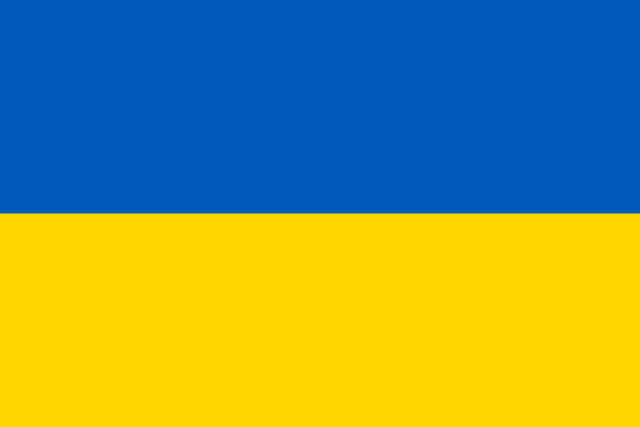We have been gravely following the heartbreaking news from Ukraine.

I have written before about one set of my grandparents, and how they met as schoolteachers in the aftermath of WWII. Now, as I read news about evacuation trains from Ukraine to Poland, my mind keeps coming back to the reason why my grandmother’s parents settled in western Poland in the first place: Soon after the war, her father got advance warning that his family was about to be forcibly resettled to somewhere deep in the interior of Russia. Instead, they packed in a hurry and decided to travel west, west, west, as far from the USSR as possible. From formerly-northeastern-Poland they rode the slow, crowded train for several weeks. According to family lore, they stopped only when the train tracks literally ran out and they could go no further. In light of the past few weeks, it seems to have been a wise decision. She still lives in western Poland and is safe at the moment—but after seeing decades of what seemed like slow, grueling social and political change for the better, she never expected to be so near a war zone again in her 90s.
As for my grandfather, he became a history student at university but got in trouble with the Soviet police for his “critical stance towards reality” (i.e., asking questions and not toeing the party line). He was forced out without the degree he had earned and sent to a tiny rural town to teach Phys Ed., instead of history. Although it’s fortunate for me that he met my grandmother there, it took him years of waiting for a political thaw before he was allowed to finish his degree and teach his students the historical facts and contexts that he knew they needed to learn. As an educator who spent the rest of his life working to broaden the minds of his students and fellow citizens, he would be dismayed by the echo chambers that still exist in Russian state media today.
So what can we do, here and now? Out of all the many worthy causes that need urgent support, I’d like to highlight one: Helping Ukrainian people with intellectual disabilities and their families.
#Donate to help people with intellectual #disabilities and their families. 100% of the money collected will be used directly to assist Ukrainian citizens with intellectual disabilities and their families impacted by war in #Ukraine. https://t.co/4DOOgeEa2I pic.twitter.com/04tS2TRxLX
— Inclusion Europe (@InclusionEurope) March 4, 2022
Living in a war zone is horrific for everyone. A group that needs particular help is folks (like one of my own children) with intellectual and mobility challenges, who can’t just get up and leave on their own even if the roads are open. Inclusion Europe and Ukraine VGO Coalition are collecting funds for direct assistance for Ukrainian families in this situation. Please keep these groups or similar causes in mind, if you are fortunate enough to be able to make charitable donations.
The other thing we can do is encourage our leaders to remain in solidarity with Ukraine, even when we start to feel the economic effects ourselves around the world. This debate is very active in Poland right now, where individuals and charities are rushing in to help Ukrainian refugees but worrying about how long they can sustain the effort. Here is (my own rushed translation of) an excerpt from an opinion piece by Katarzyna Pełczyńska-Nałęcz, former Polish ambassador to Moscow:
Can we afford gasoline at 10 zł/liter (~$9/gal)? Before we ask, let’s think about the stakes in this war. […] The first shock has passed. We are getting used to the reality of being a country on the war front. The price of gas is spiking. Food prices will rise soon too[…] We will have to share hospitals and schools with over a million refugees. We are starting to see exhaustion and anger. [Among other things,] anger at our government, which brags about how Poland has welcomed the refugees, even though actually the massive volunteer efforts of the populace are doing most of this work in the government’s place. […] And then we start to wonder if maybe this is all overblown, if there are limits to self-sacrifice, if maybe it’s not worth taking on such great costs, because we too have our own worries and debts and lives.
Yet at this moment, it’s important to remind ourselves what the stakes are.
[Because if Ukraine loses, then] another Iron Curtain will fall on our eastern border. Beyond it, the Russians will build a totalitarian state, which will root out everything that is Ukrainian and terrorize our neighbors into one “great” Russian nation. […] From Ukraine there will be not 2 million but 10-15 million refugees. And along our borders, from the Baltic Sea to the Bieszczady Mountains, the Russian military will be standing there armed to the teeth. Putin, threating us with his nuclear button, will demand that the Americans leave Poland. Many businesses, but also everyday people, will start to wonder whether Poland is indeed a country worth investing in and living in. […]
So when the difficult moments come – and in the coming days there will come more and more of them – when we are overwhelmed with frustration and doubt, when we think that maybe our government is right and we can’t afford 10 zł/liter gasoline, then let’s simply remember what the stakes are in this war.
Update: For any academic readers, I’m also passing along a note from David Swanson, Professor Emeritus of Sociology, University of California Riverside:
For those interested in assisting our Ukrainian colleagues, a website set up and maintained by faculty at Charles University in the Czech Republic is a site where one can post offers of aid (e.g., a visiting scholar position) and where colleagues in Ukraine can access information about job offers, fellowships etc. directly at one place in the internet: https://helpline-demography.eu/
Please feel free to send any information to info@helpline-demography.eu
